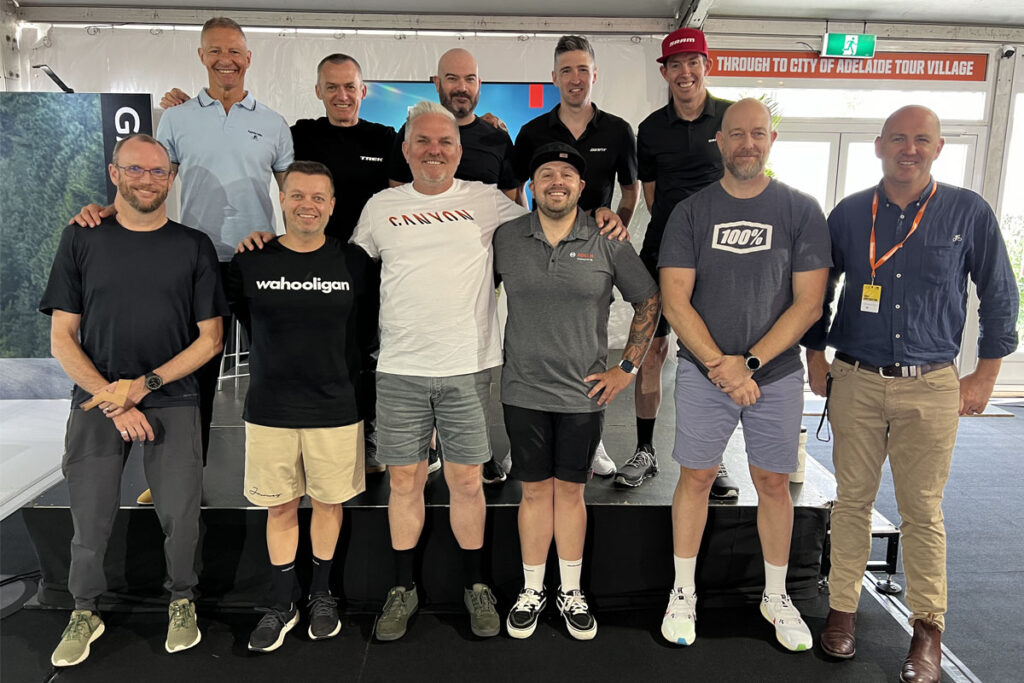Bicycle Industries Australia Members Vote to Increase Fees

Adelaide, SA
Bicycle Industries Australia (BIA) which is the national industry body for the Australian bicycle retail and wholesale sectors held its annual general meeting in Adelaide on Thursday 18th January.
Retailers currently pay $99 + GST in annual membership fees, while wholesalers pay a flat rate of $1,800 + GST, regardless of their size.
In recent years the total income of BIA has hovered just above or below $100,000 per annum. For the financial year ended 30th June 2023 income was $89,932 and the organisation posted loss of $12,581.
This compared to income of $96,283 and a profit of $5,269 the previous financial year.
BIA Executive Officer Peter Burke assured the members attending that the organisation was still solvent because it was showing approximately $119,126 in net assets on its balance sheet as at 30th June 2023 and that the current financial year was on track for an $8,000 profit.
But with the relatively weak financials in mind, members discussed the annual fees, which had not been increased for wholesalers in seven years. They agreed to a 10% increase for wholesalers which would make the new annual fee $1,980 + GST, but will be keeping the retailers fee unchanged at $99 + GST.
New Board Members and Resignations
Four experienced and long-standing directors have resigned and were formally thanked at the meeting. These were Graeme Moffett (Pon) who was the previous Chairman, Martin Clucas (Giant), Andrew Eames (Trek) and Jamie Walsh (Global Fitness & Cycling).
Seven nominations were received for the new board and all were elected unopposed. The new board is Leonard Gries (Apres Velo) Chairman, Wade Budden (Specialized), Tim Dawson (Shimano), Mark Eadle (Trek), Dave Evans (SRAM), Darren Harper (FE Sports) and Alistair Wilson (Giant).
Peter Bourke highlighted the issue that all new directors are male and asked all members to help encourage female participation.
The most recent female director, Laura Wilson (Specialized), is currently on an around the world cycling adventure that may last two years.
New Initiatives in Sustainability and Sales Data
Peter Bourke highlighted a range of wins that BIA had secured. He stressed that in many situations, dealing with government bureaucracies takes years to get results.
He spoke about ANZSCO (the Australian and New Zealand Standard Classification of Occupations) which is a grading of all job categories across Australia and New Zealand from level one to level five. Until recently, bicycle mechanics have been ranked in the lowest category, level five, alongside the most menial and unskilled jobs.
After an eight year campaign, BIA has successfully seen this lifted to level three.
This is significant because it enables the role of bicycle mechanic to now go onto a Skills Register and from there, onto a Skills Shortage List. This in turn should unlock more government funding for bicycle mechanic training.
In technical regulation change news, BIA has successfully lobbied the WA government to increase the maximum width of bicycles (and tricycles) from 660mm to 800mm and is trying to get to the point where there are no width restrictions in any state or territory.
Peter also reported that the Tasmanian government is working towards increasing the maximum power assist speed of e-bikes from 25kph to 32kph.
BIA also launched a sustainability committee whose inaugural members were Laura Wilson, Jessie Alice, Carlos Schedallar, Adam Lana, Mark Eadle, Guido Verbist, Charlie Wooley, Kieran McMahon and Ross Wilkinson.
They have produced a new resource the ‘Sustainability at Retail Playbook’ which can be downloaded free of charge from the BIA website, or you can access it directly here.
Meanwhile after decades of discussion and false starts, it appears that there is sufficient goodwill and momentum that the collection and sharing of bicycle sales data at the wholesale level will finally be getting underway this year.
Peter Bourke praised Wade Budden from Specialized for driving this project forward.
This represents a 180 degree turn around for Specialized, which for many years under previous management was one of an extremely small group of major wholesalers who did not want to take part in proposed sales data sharing schemes. Because any data sharing program needs as close to 100% participation as possible to collect the most useful data, it requires goodwill and collaboration from all of the major players in order to be most effective.
Details still need to be worked out as to how much this industry data will cost each member to receive. There was general agreement at the meeting that there will be at least two levels of fees: a lower level for those who participate in sharing data and a higher level for those who do not.
One complicating factor is that the data will, at least initially, only collect sales of complete bicycles, so supportive companies such as SRAM, Shimano and others that only wholesale parts and accessories cannot participate in the collection element, but would benefit from access to the data.
Another point of broad agreement was that the industry sales data project represents a major new potential income source for BIA and needs to be run on a profitable basis for BIA to broaden its income base, which is currently almost totally reliant on membership fees.
The meeting concluded with a group photo.
